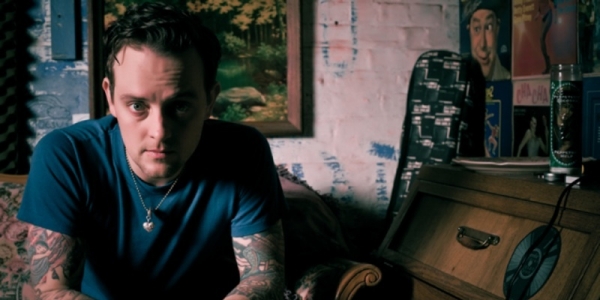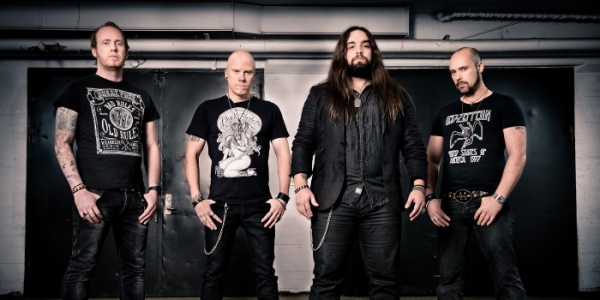The night previous in Toronto, Canada was a little more demanding than usual for Hause, the Philadelphia-based songwriter, as a group of overly boisterous crowd members stole the show. Engaging heavily in an alcohol and drug-fuelled evening, it was a night of revelry that Hause has admittedly seen the likes of before.
“It’s always interesting when you’ve got a group of guys at a show that are 100 per cent more fired up than the rest of the crowd,” says Hause wryly.
After having released records with four different bands (The Loved Ones, The Curse, Paint It Black, Step Ahead) and as a solo artist, Hause has seen his role change simply from being a musician into being a performer and, at times, a protector.
“I guess this comes from playing in punk bands when I was younger, but you wonder if they’re going to cause any trouble,” admits Hause. “So I’m always on the lookout during my set. But they were cool; they were fired up. They were so much more amped than the rest of the crowd,” says Hause with a chuckle.
Never one to shy away from engaging a crowd, Hause takes pride in ensuring his sets are memorable for all the right reasons. He mentions repeatedly throughout our interview how important it is for the members of his crowds to have a good time. Learning how to encourage such an atmosphere has taken time, and Hause has had to model what he does after a few of the great performers of our time.
“I think about the way David Lee Roth used to do it, or the way Dave King from Flogging Molly does it. They’re the hosts of a giant party and want everyone to have a good time. And sometimes when you’re having a party you’ve got to get rid of that one asshole that’s causing shenanigans. But I’ve found that happens less and less once people start to know your songs,” says Hause.
After the release of his 2011 solo full-length Resolutions, his songs became more than just cult favourites. He began touring the world in earnest, spending large portions of the year on the road.
Yet Hause speaks of this time with incredible grace and appreciation. Now in his mid-thirties, Hause has put in his time playing the cramped basements and is beginning to use his music as a vehicle to see the world outside of his Philadelphia roots. He’s even noticed a thing or two about the differences in crowds throughout the world.
“Well there’s more of a similarity between Canadian, Australian and European crowds,” says Hause. “American crowds are a little spoiled. And I’m saying that as an American, we’re spoiled with the amounts of shows we get. Culturally of course, it’s very different in Japan. Their commitment to honour translates to the show itself. I’d say Australians are pretty rowdy though,” he admits.
His “role” as it were may not be then just simply a performer, or even a protector. Having fully embraced the lifestyle of a touring musician, Hause may think of himself as a traveller, first and foremost.
“My music has come of age in a time when records don’t sell the way they used to,” says Hause when asked if touring has become necessary for his survival. “As far as my emotional make up and how I stay sane, I need to keep going. And one of the ways I do that is to book a lot of shows, get a lot of different perspectives from a lot of different people. I’m from a working class, gritty East Coast town where a lot of people don’t ever get past the Jersey Shore. A lot of people I know have never been to New York City, Canada, much less Europe or Australia. So for me, that shapes my worldview. Most of what I’ve learned has come from travelling around the world. It’s a huge part of what I do.”
To say then that Dave Hause is grateful for the opportunities he’s been given to tour the world would be an understatement. An exceptionally amped up crowd isn’t anything Hause hasn’t seen before, or can’t handle. He’s a versatile performer, one whose ability to manage a crowd usually produces the most fruitful of results.
“It’s kind of like surfing I guess,” muses Hause. “You have to know when the wave is coming and know how to catch it. It’s something you’ve got to work at.”
BY JOSHUA KLOKE

